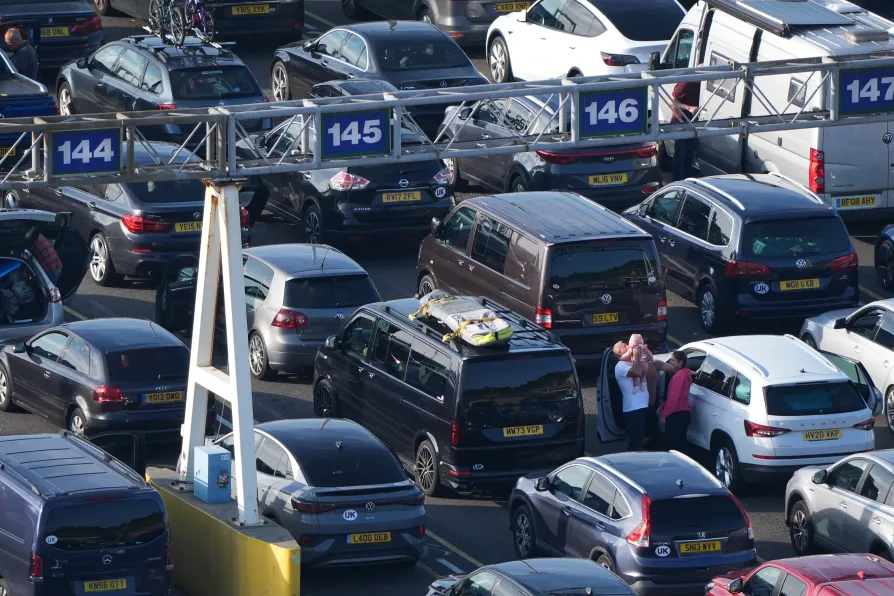
 Holiday traffic queues to board a ferry at the Port of Dover in Kent, as travellers make their way across the Channel for the summer holidays, July 26, 2025
Holiday traffic queues to board a ferry at the Port of Dover in Kent, as travellers make their way across the Channel for the summer holidays, July 26, 2025
TRANSPORT union RMT underlined new ferry route figures as proof that decent jobs, conditions and union recognition deliver better services for passengers.
Passenger numbers on the Stena Line-operated Fishguard–Rosslare route, which runs from Wales to Ireland, were nearly 10 per cent higher last year compared with 2019.
However, on the competing Irish Ferries’ Pembroke–Rosslare service, which RMT says uses a P&O-style low-cost crewing model, numbers plunged by nearly 50 per cent during the same period.
The union says this model is not only plagued by low wages and poor conditions, but also relies on fatigue-inducing roster patterns that affect safety and service quality.
It added that a key difference between Irish Ferries and Stena Line is that the latter recognises RMT, which can negotiate pay and conditions, sustaining decent jobs.
This has supported improved services for passengers and confidence from the operator, which is investing up to £20 million in upgrades at Fishguard port, the union said.
RMT general secretary Eddie Dempsey said: “Our members at sea and in the port have adapted to rising demand, stepped up after the closure of Holyhead, and helped safeguard a vital transport link, all while facing low-cost competition from Irish Ferries.
“It is clear where there are union-negotiated terms and conditions, there is stability, reliability and growth in the industry.
“But where operators chase short-term profit by working seafarers to the bone, using exploitative crewing models and fatigue-inducing rosters, the service suffers.
“That is why we support the government’s plans for a mandatory, legally binding seafarers’ charter.”
The government has committed to making the Seafarers’ Charter mandatory as part of the Employment Rights Bill, which is expected to be passed this autumn.
Irish Ferries was contacted for comment.










